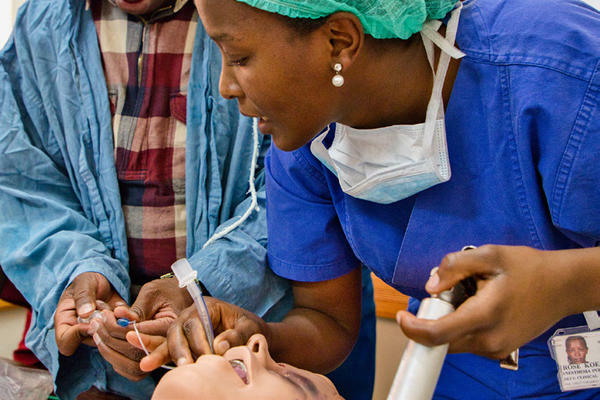As agreed by World Health Organization (WHO), the United Nations Population Fund (UNFPA), the United Nations Children’s Fund (UNICEF), the International Confederation of Midwives (ICM), the International Council of Nurses (ICN), the International Federation of Gynecology and Obstetrics (FIGO) and the International Pediatric Association (IPA) in 2018, Skilled health personnel, are competent maternal and newborn health (MNH) professionals educated, trained and regulated to national and international standards. They are competent to: (i) provide and promote evidence-based, human-rights based, quality, socio-culturally sensitive and dignified care to women and newborns; (ii) facilitate physiological processes during labour and delivery to ensure a clean and positive childbirth experience; and (iii) identify and manage or refer women and/or newborns with complications. Skilled Health Personnel, working within enabling environments are critical for improved quality of care and improving maternal health.
Advanced Obstetric and Anaesthetic Skills
Following the successful implementation and evaluation of the LSTM-Emergency Obstetric and Newborn Care training package and our work around Maternal Death Surveillance and Response, this training offers additional support to improve the availability and quality of care at comprehensive emergency obstetric care facilities.
We have therefore developed an expanded training package in EmOC aimed at improving
- capacity for decision making, leadership of maternity care teams,
- capacity to improve peri-operative care,
- capacity to improve caesarean section
- capacity to improve assisted vaginal delivery
This intensive 5-day training course will be delivered within a busy Obstetric referral unit and will target medical officers, peri-operative nurses, maternity ward leads and anaesthetic staff.

Basic Emergency Obstetric Care Package
Manuals and training equipment: There are pre-designed materials for delivery of the training package that include a simple manual: Life Saving Skills - Essential Obstetric and Newborn Care (RCOG Press 2006–revised 2008) and a Facilitators Guide (RCOG Press 2009)*. In addition, a generic set of obstetric and newborn mannequins that have been extensively field-tested, is used to facilitate this training. The full set of training equipment can be used to support a full ‘skills laboratories or used as smaller mobile sets to support multiple sites as a way of sustaining the effects of the initial training. Over 80% of the training is practical (simulation and hands-on), a deviation from the approach to in-service training in many low resource settings. The evidence based learning and teaching methods used are suitable for adult learning and have been shown to resulted in improved communications, reduced treatment delays and improved evidence based practice.
*Van den Broek, N. 2007, Life Saving Skills Manual Essential Obstetric and Newborn Care, 2nd Edition edn, Royal College of Obstetricians and Gynaecologists, London.

Both the manual and course content were designed with an awareness of the very real barriers to accessing care that women in resource poor countries have, as well as with the realisation that many healthcare providers trying to provide Skilled Attendance at Birth (SBA) and Emergency (or Essential) Obstetric and New-born Care (EmONC), work in difficult circumstances with limited resources. All case scenarios are based on actual everyday situations that would be encountered in a BEmONC or CEmONC facility in sub-Saharan Africa and/or Asia.
LSTM has developed numerous manuals, guidelines and protocols, such as the On the Job Training Manual (Sierra Leone), the Expanded EmONC Training Manual (Kenya) and the Skills Lab for RMNCH+: a Services Training Manual (India).
More information:
Blog 02 Feb 2023: Advanced Comprehensive Obstetric, Surgical and Anaesthetic skills Course: University of Nairobi and Liverpool School of Tropical Medicine